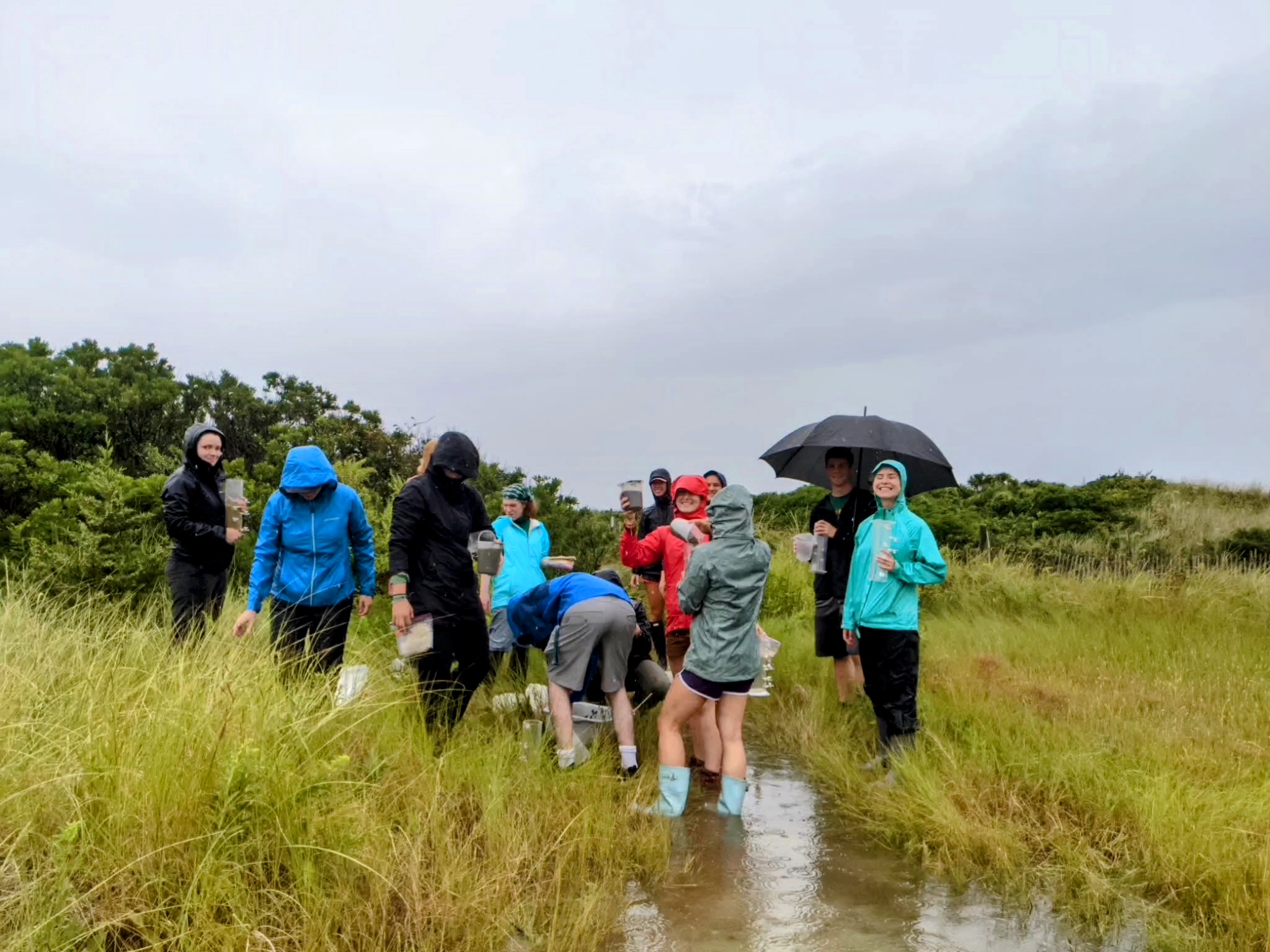SES Students Brave the Rain for Science

Science never stops, even for the weather.
When heavy rains hit Cape Cod last week, students in the MBL’s Semester in Environmental Science (SES) program didn’t let a little bad weather stop them. They headed out to Little Sippewissett Marsh in Falmouth, Mass., to collect sediment samples for their Microbial Methods course.

"Fortunately, none of the students nor I were water soluble," said Joe Vallino, MBL senior scientist. Vallino teaches the Microbial Methods course, an elective for students participating in SES.
Once back in the lab with samples in hand, the students created their own Winogradsky columns. Named after Sergei Winogradsky, who is often cited as the "father of modern microbiology," Winogradsky columns consist of sediment and water, augmented with nutrients and food sources, and added to a clear container and can be used to study and explore microbial diversity and metabolic strategies found in the sediments.

All the major metabolisms that occur on Earth also occur within Winogradsky columns, which makes them a vital system for explaining and observing the microbial metabolisms dominated by bacteria and archaea. The SES Students in the Microbial Methods course use these columns as their "field site" for the rest of the semester, observing and collecting samples from their columns to help them better understand microbial metabolism and learn new methods.
"Microbial Methods class has exposed me to the world of microbiology with field and lab techniques I never had the opportunity to learn at my school," said SES student Alice Ball, a senior at Connecticut College. "Field work at Little Sippewissett was a fun and hands-on look into microbial communities found in typical marsh ecosystems, and the chemical processes that affect them."
 Students from MBL's Semester in Environmental Science headed to Little Sippiwissett Marsh to collect samples -- in spite of the rain. Credit: Joe Vallino, MBL
Students from MBL's Semester in Environmental Science headed to Little Sippiwissett Marsh to collect samples -- in spite of the rain. Credit: Joe Vallino, MBLIn their other classes over the course of the semester, SES students investigate the effects of global change on ecosystems, focusing on how humans alter nutrient cycling and productivity.
"SES so far is a rigorous, challenging, and rewarding experience in field and laboratory environmental science," said Ball.
The Semester in Environmental Science runs from August 30 - December 14, 2021.